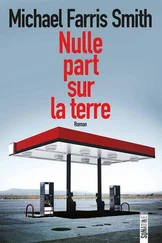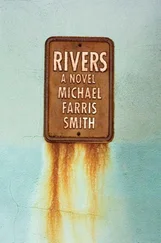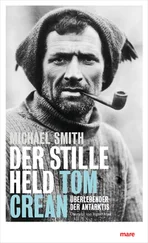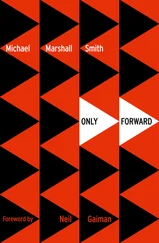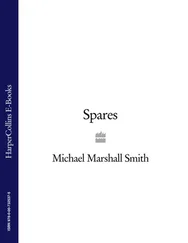William, on the point of interjecting ‘blah’, stopped himself in time. There was more to come.
‘Got a place at last. Found it yesterday. Kennington. Not bad at all.’
‘Oh yeah?’
‘Yep. De Laune Street. Heard of it?’
Eddie had not. ‘Sounds posh. Not?’
‘No, not. But it’s got three bedrooms. Five hundred and sixty quid a month each. I need one other person. Maggie says she’ll take one of the rooms, but only three weeks after the lease starts. That’s a bit awkward but I said OK, that’s cool. So there’s her and me. I thought you might like the other room. Get your old man out of your hair.’
William’s eyes widened.
‘Well . . .’
Take it, thought William. I’ll pay.
‘Nice place,’ said Stevie. ‘You know that pub we went to last month with Mike? Remember? It’s round the corner.’
There was silence. William imagined Eddie doing the calculation. Currently he lived rent-free in a better area. He also received free food and heating, and paid no discernible taxes. If anything went wrong and a tradesman was required, then it was William who made the arrangements. And Eddie, as far as his father could remember, had never used the vacuum cleaner, nor washed up, nor even loaded the dishwasher, in spite of frequent hints and requests. Eventually William had tired of piles of unwashed crockery and accepted that he would have to do everything himself - in a tight-lipped way, of course, but keeping before him, like the prospect of release from servitude, that glorious moment when his son would announce that he had found a flat and was moving out. Durance vile, though, was proving to be drawn out.
Eddie spoke. ‘Can you give me time to think? There’s quite a lot going on round here that I have to sort out.’
‘Next week, Ed,’ said Stevie. ‘Next week, max. I have to tell the guy next week or he gives to it to somebody else. Students, I think. He doesn’t really want students, but he says they’re offering to pay a bit more rent and he has to know.’
‘Students are bad news,’ said Eddie.
William slipped the handset back into its cradle. He had heard enough - too much, in fact. Eddie had said that there was a lot going on - but what exactly did he mean by that? And as for the comment about students . . . One has to laugh, he thought, and he did then; looking up at the ceiling, he laughed at his son’s sheer effrontery. One had to like the young man, one really did. Perhaps he should just let him stay, resign himself to the fact that some people were meant to stay at home, like those Victorian and Edwardian women who never married but lived at home to look after their parents. And then, when the parents were no more, they became companions to other women, richer ones, and lived in that beholden state for the rest of their days.
But there was a difference. Those daughters looked after their parents, whereas it was he who was looking after Eddie. That was a major difference. And then those women busied themselves with all sorts of activities - sewing, making things - whereas Eddie . . .
No, the decision was made. And now, sitting in his office, staring at the empty chair recently occupied by Marcia, he realised that the endless rehearsal of options could be just that - endless. Upon reflection, the rent scheme looked less and less likely to achieve its objective. Eddie would simply refuse to pay up, and even though William controlled the purse-strings of the grandmother fund, he doubted whether he would be able to stand up to a furious Eddie should he turn off the monetary tap. No, he would have to be more subtle, and Marcia’s idea of obtaining a dog under a dog-share scheme seemed the perfect answer. Eddie hated dogs. He was scared of them in an utterly irrational way. And there was a physical reaction too: dogs made his eyes water - not uncontrollably, but at least to the point of irritation. And if a dog licked him, his skin itched.
He picked up the telephone and dialled the number Marcia had left. Would this dog be licky ? he wondered. He hoped so.
A voice answered at the other end: a slightly impatient voice, the voice of one who rather resents being telephoned by a caller who will almost certainly be less significant .
‘Look,’ said William, ‘I’m sorry to phone out of the blue, but I was given your number by Marcia. She did some catering for you recently and she said that—’
The voice cut him short. ‘If you’re wanting to sell me something, I’m afraid—’
‘No, I’m not. Not at all. It’s just about your dog.’
There was a surprised silence at the other end of the line. Then: ‘My dog? Freddie de la Hay. Do you know him?’
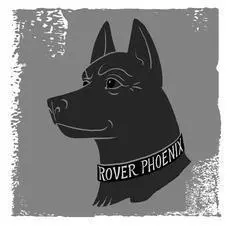
William had treated himself to a taxi - this was, after all, a special mission and he needed time to think. He would need to come back by taxi too, since he was unsure about taking a dog on the tube. William reflected on the fact that while dog-owners notice the dogs of others and what they are doing, non-dog-owners tend not to be aware of what dogs are up to and what rules, if any, they obey. Had he seen dogs on the tube? There was a guide dog who travelled regularly on the Victoria Line; William had once spoken to its owner, breaking the rule of silence that made strangers of multitudes, and had heard how this intelligent dog could distinguish the various lines by their smell. The Victoria Line, the owner claimed, smelled quite different from the Northern Line or the District and Circle Lines; but only a dog would know.
Guide dogs, of course, were different, and usually not subject to the same rules as lesser dogs, but when it came to recalling whether he had seen ordinary dogs travelling on the tube, he was not sure. But then he remembered: he had seen a dog on the Northern Line a while back, being carried by its owner, a middle-aged woman in a low-waisted green dress who had talked to the dog throughout the journey. William remembered this because he had been struck by the conversation between woman and canine. The woman had looked into the dog’s eyes as she addressed it, and it had looked back at her with every indication of understanding and agreement. He had thought: she yearns for conversation, here in this great city, and only the dog will oblige.
But even if the dog-sharing arrangement were agreed that day, he would not want to travel back on the tube with a dog who would still be a stranger. And what if one had to pick up one’s dog to travel on an escalator? He was not sure he would be able to lift this Freddie de la Hay, who could for all he knew be a very large dog, the size of a Rottweiler perhaps and with a disposition to match, who would respond to William’s attempts to pick him up by savaging him, right there in the tube station, at the foot of the escalator beside the admonitory notice, Dogs Must Be Carried. What a scene that would be, as the crowds, anxious not to be delayed, stepped around the scene of carnage, one or two muttering, ‘Well, you shouldn’t bring large dogs on the tube.’
The thought made William worry. In his eagerness to enter into this arrangement, he had forgotten to ask for any information about Freddie de la Hay. All he knew was that he was a Pimlico Terrier, a breed that he had never seen, nor indeed heard of before. And as for his name . . . He looked out of the taxi window as he mused on the subject of canine names. From one point of view, the name of a dog said nothing about the dog itself and everything about the owner. But then, mutatis mutandis, that was the case with human names too, except in those comparatively rare cases where people chose to call themselves something other than the name imposed on them by their parents. John Wayne was really Marion Morrison - not a name by which a macho film star might wish to be known. And Harry Webb, had he sung under that name, might never have been as successful as he was as Cliff Richard. Such changes were understandable and necessary, perhaps, if creativity were to flourish. Of course, the new names chosen were usually much more suitable than those given at birth. John Wayne was clearly a John Wayne rather than a Marion Morrison. And the same must be felt by those boys who were called Beverley but became something else, out of sheer self-defence.
Читать дальше



